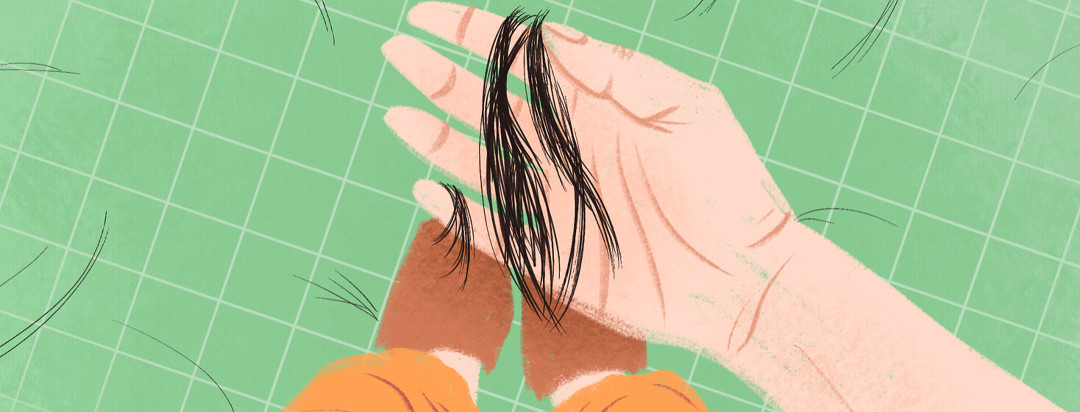Hair Loss and Cystic Fibrosis
Hair loss can be disheartening no matter what the underlying cause is, as many of us have an emotional attachment to our hair. In some cases, our hair is tied to our identity; it is a form of expression. Hair loss can lead to depression, anxiety, and low self-esteem.
While there is no one culprit that explains hair loss in people with cystic fibrosis (CF), the following may all be contributing factors. To determine the exact cause of your hair loss, speak to your clinicians involved in your care.
Factors that contribute to hair loss with cystic fibrosis
Fat-soluble vitamin deficiency
Most of us are aware of the nutritional issues that accompany CF. Insufficient production of pancreatic enzymes results in malabsorption of some vitamins, such as the fat-soluble vitamins A, D, E, and K.
It turns out that all of the fat-soluble vitamins contribute to healthy hair development. Vitamin A is crucial for hair growth; deficiency can result in hair loss. On the flip side, intaking too much Vitamin A can also contribute to hair loss. Similarly, Vitamin D has also been linked to hair loss. Vitamin E, as an antioxidant, is important in preventing premature hair thinning and greying. In addition, Vitamin K is implicated, although to a lesser extent.1
Blood tests, which should be conducted annually in people with cystic fibrosis to assess Vitamin A, D, and E levels, can help determine if hair loss is a result of a vitamin deficiency.1
Stress
We have all heard about the link between hair loss and stress. Stress can be a result of major surgery, serious illness, calorie malnutrition, or emotional stress, and in most cases is acute in nature. Usually, hair loss starts 2-3 months after the inciting factor and improves only when the factor is removed. Hair usually grows back 6-12 months later.2
People living with CF are likely to experience stress at some point. CF exacerbations are a common example of one of these stressors. In some individuals, the stress can be chronic. Chronic hair loss due to stress is more common in women between the ages of 30-60 years old.3
Medications
Some of the medications used to manage cystic fibrosis have been linked to hair loss. For example, the anti-fungal medication voriconazole is a known culprit. One study revealed that 82% of people on voriconazole therapy developed hair loss, at a mean of 75 days after initiating treatment. It took approximately 3 months for hair to regrow after stopping therapy.4
Hair loss can impact our mental health
When you experience hair loss due to an illness, others may attempt to empathize by assuring you that "it's just hair." To some extent, that is true; we are all aware that hair is largely cosmetic and not necessary for our survival. However, hair loss can have significant impacts on our mental health.
If hair loss is affecting your self-esteem, I would recommend seeking a consultation at a hair loss center. Often, centers that specialize in hair loss are very empathetic and provide effective short and long-term cosmetic solutions.
Have you experienced hair loss with cystic fibrosis? Share your story with us!

Join the conversation